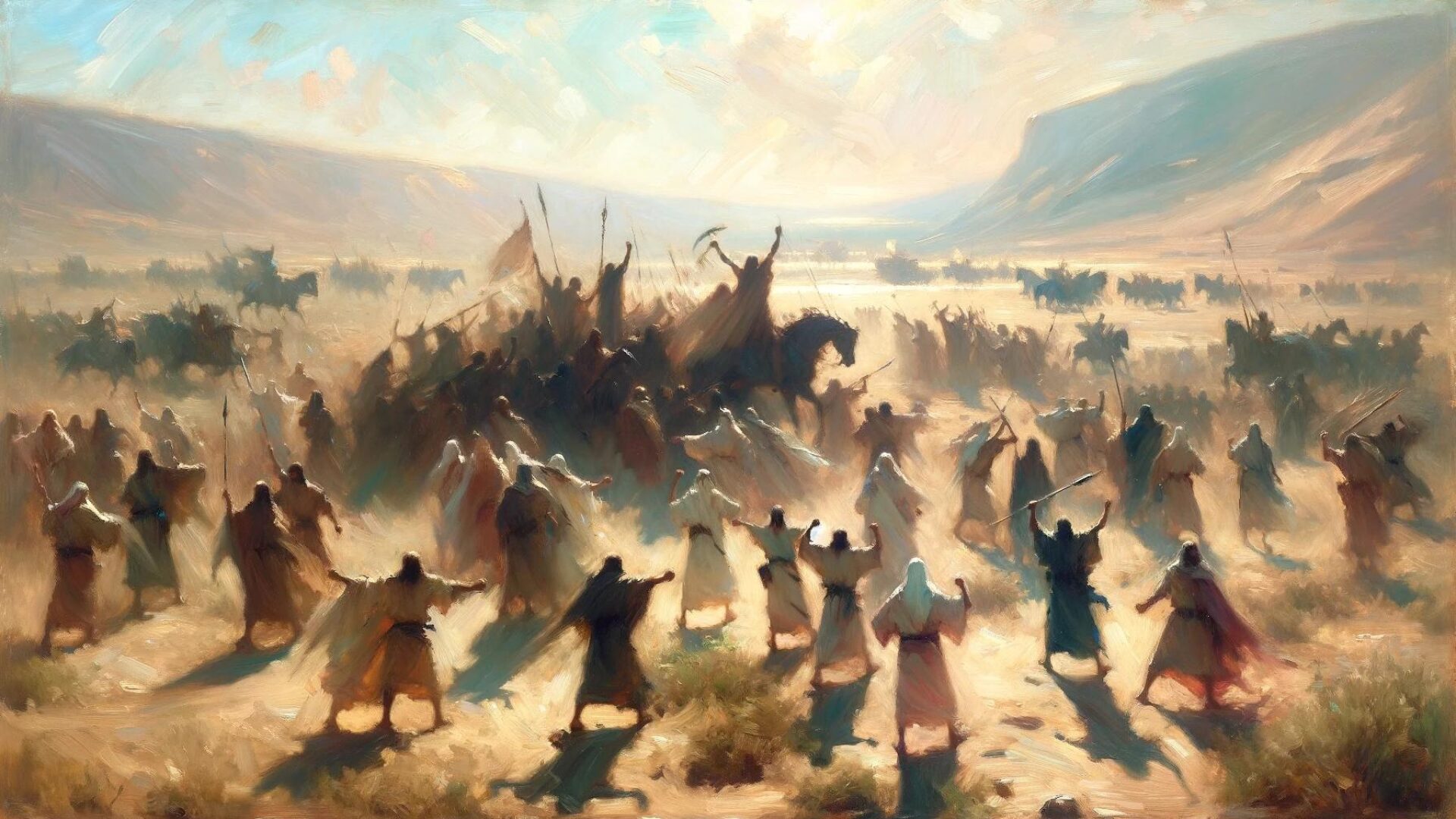Christianity is one of the most widely practiced religions in the world, with over 2 billion followers worldwide. It has made a significant impact on global culture, inspiring breathtaking works of art, shaping traditions, and influencing moral values. In this article, we will explore the rich tapestry of Christian culture, providing insight into the beliefs, practices, and traditions that define this faith.
Understanding Christian Beliefs and Practices
Christianity is a religion that is centered around the belief in one God, who sent his son, Jesus Christ, to save humanity. Central to Christian beliefs are the concepts of the Trinity, salvation, prayer, and sacraments.
The Trinity
The Trinity refers to the belief in one God who exists in three persons: the Father, the Son, and the Holy Spirit. This doctrine is central to Christianity and emphasizes the unity and diversity of God.
Salvation
Salvation refers to the concept of being saved from sin and death through faith in Jesus Christ. Christians believe that salvation is a gift from God and that it is obtained through faith, not by good works or personal merit.
Prayer
Prayer is an essential part of Christian faith and serves as a means of communication with God. Prayers can take many forms, including petitions, thanksgiving, and intercession for others.
Sacraments
Sacraments are sacred rituals that are seen as a means of grace in Christianity. These include baptism, confirmation, Eucharist (also known as communion or the Lord’s Supper), reconciliation (also known as confession), anointing of the sick, and holy orders.
Understanding these core beliefs and practices is essential in gaining a deeper understanding of Christianity and its significance in the world today.
Embracing Christian Traditions
Christianity is founded on a rich tapestry of traditions that have developed over centuries of practice and belief. From the celebration of holy days to the observance of sacraments, these traditions play an important role in shaping the faith and identity of Christians all over the world.
One of the most beloved Christian traditions is the celebration of Christmas. This holiday commemorates the birth of Jesus, and is marked by a variety of customs such as decorating Christmas trees, exchanging gifts, and singing carols. Another significant holiday is Easter, which marks the resurrection of Jesus from the dead. Christians celebrate Easter with traditions such as attending church services, fasting, and participating in egg hunts.
Another important aspect of Christian tradition is the observance of sacraments. These include baptism, which symbolizes the cleansing of sin and the beginning of new life in Christ, and communion, which commemorates the Last Supper and the sacrifice of Jesus on the cross. Additionally, Christians recognize other sacraments, such as confirmation, marriage, and holy orders, as important milestones in the spiritual journey of believers.
Through these and other traditions, Christians connect with their faith and their community, and deepen their understanding of the teachings of Jesus. By embracing these practices, believers are able to draw closer to God and to one another, and to experience the transformative power of the Christian message.
Living a Christian Lifestyle
Christian lifestyle is a way of living that is centered on the teachings and principles of Jesus Christ. It emphasizes selflessness, love, forgiveness, and humility, and seeks to emulate the example set by Jesus himself. Living a Christian lifestyle involves more than simply attending church or following a set of rules; it is about having a personal relationship with Christ and allowing his teachings to shape every aspect of your life.
One of the key values that defines a Christian lifestyle is love. Christians are called to love God with all their heart, soul, and mind, and to love their neighbors as themselves. Love is expressed through acts of kindness, compassion, and generosity, and is the foundation of all Christian relationships.
Forgiveness is another important aspect of Christian lifestyle. Christians are called to forgive others as they have been forgiven, and to seek reconciliation whenever possible. Forgiveness is a challenging but essential part of living a Christian life, and is central to the message of the Gospel.
Humility is also a key characteristic of Christian lifestyle. Christians are called to put the needs of others before their own, and to avoid pride and arrogance. Humility is not weakness; rather, it is a recognition of our dependency on God and a willingness to serve others.
Service to others is another important aspect of Christian lifestyle. Christians are called to care for the poor, the marginalized, and the vulnerable, and to work towards justice and equality for all people. Service is not an optional add-on to the Christian life; rather, it is a fundamental expression of faith.
Ethics and moral decision-making are also central to Christian lifestyle. Christians are called to uphold the highest standards of integrity and honesty, and to make decisions that honor God and reflect his character. Ethics are not a set of rules to be followed; rather, they are a reflection of the character of God and the values of his Kingdom.
Living a Christian lifestyle requires intentionality and discipline. It involves daily seeking God through prayer, reading the Bible, and cultivating relationships with other believers. It means being willing to repent of sin and to pursue holiness in every area of life. Ultimately, living a Christian lifestyle is about becoming more like Jesus, and reflecting his love and grace to the world around us.
The Christian Community: Unity and Fellowship
The Christian community is an essential aspect of Christian culture, emphasizing the importance of unity and fellowship among believers. In this section, we will explore the various elements that make up the Christian community and the significance of each.
The Role of Church Gatherings
One of the primary ways in which Christians come together is through church gatherings. These can take many forms, from Sunday services to midweek Bible studies. Through these gatherings, Christians have the opportunity to worship God, learn from His Word, and fellowship with one another.
Attending church services regularly is an essential part of Christian life, providing a sense of connection to a broader community of believers and a place to grow in faith.
Small Groups and Fellowship
In addition to attending church services, many Christians also participate in small groups for fellowship and spiritual growth. These groups can take various forms, including Bible studies, prayer groups, and social gatherings.
Small groups provide an opportunity for believers to form deeper connections with one another, support one another in their faith journeys, and encourage one another to grow in Christ-likeness.
Support, Accountability, and Encouragement
The Christian community is a place of support, accountability, and encouragement. Through the church and small groups, believers have a network of people who can offer practical help and support during difficult times. They can also provide a sense of accountability, encouraging one another to live out the Christian faith in practical ways.
Through times of shared worship and spiritual growth, the Christian community can also provide encouragement and inspiration to continue pursuing a deeper relationship with God.
In summary, the Christian community represents an essential aspect of Christian culture, emphasizing the significance of unity and fellowship among believers. Through church gatherings, small groups, and fellowship, Christians can grow in their faith, support one another, and encourage one another to live out the Christian life.
Unveiling Christian Heritage: Art and Music
Christian culture is rich in artistic expressions, with stunning cathedrals, iconic paintings, and inspirational music that have stood the test of time. Art and music have always played a significant role in Christianity, offering a medium for the divine to speak to the human.
The Powerful Influence of Christian Art
Christian art has an undeniable impact on people, with its beautiful symbolism, rich history, and religious themes. It seeks to convey the message of God’s love, grace, and redemption through visual representation.
From the magnificent mosaics of Ravenna to the grandeur of St. Peter’s Basilica, Christian art spans centuries and continents, leaving a lasting impression on those who gaze upon it. The powerful imagery of Christ, the Virgin Mary, and the saints evokes a sense of awe and wonder, drawing viewers into the story of salvation.
The Beauty of Christian Music
Christian music is a universal language that unites people from different backgrounds, cultures, and traditions. It offers a unique form of worship, where believers can express their love and devotion to God through songs and hymns.
From Gregorian chants to modern-day worship music, Christian music has evolved throughout the ages, reflecting the beliefs and practices of each generation. It has the power to lift the soul, inspire hope, and create a sense of community among believers.
Christian music not only serves as a tool for worship but also as a means of evangelism, spreading the message of God’s love to those who may not have heard it before. It has the power to touch hearts, change lives, and transform communities.
The Intersection of Faith and Creativity
Christian art and music are not merely means of entertainment or decoration but rather an essential part of the Christian faith. They provide a lens through which believers can see God’s handiwork and appreciate the beauty of creation.
Faith and creativity intersect in many ways, from the creation of art that reflects Christian values to the use of music to inspire worship and prayer. Through the arts, believers can express their faith, share their experiences, and connect with others on a spiritual level.
In conclusion, Christian art and music are essential components of Christian heritage, offering a glimpse into the faith and inspiring believers to deepen their relationship with God. They provide a platform for expression, fostering creativity and imagination while glorifying the Creator.
Celebrating Christian Festivals and Holy Days
Christian culture is rich in festivals and holy days that hold historical, religious, and cultural significance. Throughout the year, Christians celebrate events that mark important moments in the life of Jesus, as well as significant events in the history of the church.
The most well-known Christian festival is Christmas, which commemorates the birth of Jesus Christ. Advent, a period of four weeks leading up to Christmas, is a time of preparation and waiting for the celebration of Christ’s birth. The celebration culminates on Christmas Eve and Christmas Day, where Christians attend church services and gather with loved ones to exchange gifts and share in festive meals.
Easter is another significant Christian festival that celebrates the resurrection of Jesus Christ after his crucifixion. The week leading up to Easter is known as Holy Week and is marked by events such as Palm Sunday, Maundy Thursday, and Good Friday. The celebration culminates on Easter Sunday, where Christians attend church services and participate in traditions such as egg hunts and the giving of Easter baskets.
Pentecost, also known as the Feast of Weeks, celebrates the descent of the Holy Spirit upon the apostles and marks the birth of the Christian church. This festival takes place fifty days after Easter and is marked by celebrations such as prayer services, parades, and cultural festivals.
Other significant holy days in Christian culture include Ash Wednesday, which marks the beginning of the Lenten season of penitence and faith reflection, and All Saints’ Day, which honors all the saints and martyrs who have died for the faith. Additionally, many Christian denominations celebrate other holy days such as Epiphany, Transfiguration Sunday, or Corpus Christi.
Christian festivals and holy days provide an opportunity for Christians to come together in worship and thanksgiving, and celebrate the history and traditions of their faith.
Christian Education: Nurturing Faith and Knowledge
Christian education plays a critical role in shaping the spiritual growth and development of believers. From schools and seminaries to online resources and educational materials, there are numerous avenues through which Christians can deepen their understanding of faith.
In addition to cultivating knowledge, Christian education helps individuals grow in their relationship with God, fostering a deeper sense of purpose and calling. Through intentional learning and spiritual formation, Christians can develop a richer understanding of their faith and how it applies to their lives.
Christian education also provides opportunities for believers to connect with others in their faith community, fostering a sense of accountability, encouragement, and support. By learning and growing together, Christians can strengthen their relationships with one another and deepen their connection to the larger body of Christ.
Whether pursuing formal education through a seminary program or participating in small group studies, Christian education is an essential aspect of nurturing faith and knowledge. By seeking out opportunities for learning and growth, believers can cultivate a rich and vibrant Christian culture that honors God and reflects His love to the world.
Conclusion
Christian culture is a rich and diverse tapestry of faith, art, and traditions. From core beliefs and practices to the celebration of festivals and holy days, Christianity has shaped the world in countless ways. Living a Christian lifestyle is not just about attending church or reading the Bible; it involves embracing a set of values and principles that can guide us in all areas of life.
Throughout this article, we have explored different facets of Christian culture, from the significance of sacraments to the role of community in fostering spiritual growth. We have appreciated the artistic expressions rooted in Christian culture, from cathedrals and paintings to hymns and contemporary music. We have discussed the importance of Christian education in developing a deeper understanding of faith and nurturing a vibrant Christian culture.
Christianity is not just a religion, but a way of life that can bring about profound transformation and renewal. As we continue to explore Christian culture, may we be inspired to live out our faith with passion and purpose, reflecting the love and grace of our Heavenly Father to a world in need.





